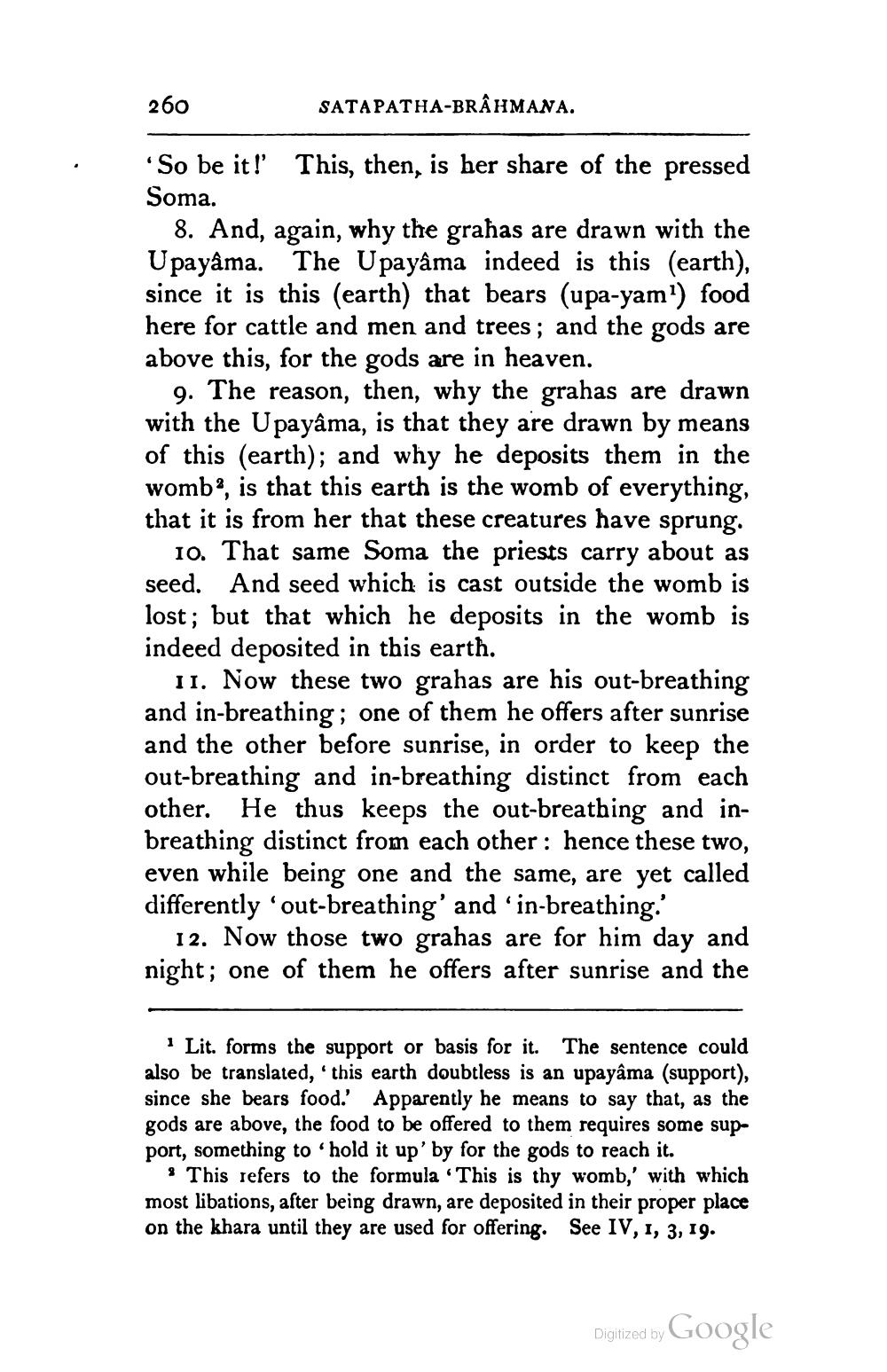________________
260
SATAPATHA-BRÂHMANA.
"So be it!' This, then, is her share of the pressed Soma.
8. And, again, why the grahas are drawn with the Upayâma. The Upayâma indeed is this earth), since it is this earth) that bears (upa-yam) food here for cattle and men and trees; and the gods are above this, for the gods are in heaven.
9. The reason, then, why the grahas are drawn with the Upayâma, is that they are drawn by means of this (earth); and why he deposits them in the womb?, is that this earth is the womb of everything, that it is from her that these creatures have sprung.
10. That same Soma the priests carry about as seed. And seed which is cast outside the womb is lost; but that which he deposits in the womb is indeed deposited in this earth.
11. Now these two grahas are his out-breathing and in-breathing; one of them he offers after sunrise and the other before sunrise, in order to keep the out-breathing and in-breathing distinct from each other. He thus keeps the out-breathing and inbreathing distinct from each other : hence these two, even while being one and the same, are yet called differently 'out-breathing' and 'in-breathing.'
12. Now those two grahas are for him day and night; one of them he offers after sunrise and the
Lit. forms the support or basis for it. The sentence could also be translated, this earth doubtless is an upayama (support), since she bears food.' Apparently he means to say that, as the gods are above, the food to be offered to them requires some support, something to hold it up' by for the gods to reach it.
This refers to the formula "This is thy womb,' with which most libations, after being drawn, are deposited in their proper place on the khara until they are used for offering. See IV, 1, 3, 19.
Digitized by Google




